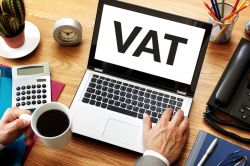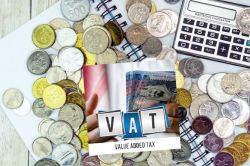 Register for VAT by December 4, 2017
Register for VAT by December 4, 2017 VAT implementation is all set to create over 5000 jobs in GCC
VAT implementation is all set to create over 5000 jobs in GCC The Federal Tax Authority (FTA) to Join e-Dirham System
The Federal Tax Authority (FTA) to Join e-Dirham System  Saudi, UAE to Enhance Collaboration for Boosting Their Economies
Saudi, UAE to Enhance Collaboration for Boosting Their Economies VAT Rules not yet finalized: UAE Ministry of Finance
VAT Rules not yet finalized: UAE Ministry of Finance No VAT on Sale and Purchase of Shares in UAE
No VAT on Sale and Purchase of Shares in UAE VAT Implementation may Bring Some Changes in Tourism and Hospitality Sector
VAT Implementation may Bring Some Changes in Tourism and Hospitality Sector 15th, November Last Date to File Excise Returns and Pay Dues in UAE
15th, November Last Date to File Excise Returns and Pay Dues in UAE  Fuel Prices to Rise Due to VAT Implementation in UAE
Fuel Prices to Rise Due to VAT Implementation in UAE Senior banker urged to postponed the implementation of VAT in UAE
Senior banker urged to postponed the implementation of VAT in UAE VAT Regulations in UAE Receives a Green Signal from Sheikh Mohammed
VAT Regulations in UAE Receives a Green Signal from Sheikh Mohammed VAT launch on 1st January 2018 asserted by Tax chief
VAT launch on 1st January 2018 asserted by Tax chief  No VAT will be levied on amount withdrawn from other bank’s ATM
No VAT will be levied on amount withdrawn from other bank’s ATM
Value-added tax is on advancement across the GCC and the progress so far is worth taking a note. Out of Six, Five of the GCC nations have approved the Unified Agreement for Value Added Tax and while the UAE has taken a leading role through the process, the administrative and legislative work still needs to be done across the region.

Pressure is building up for organizations in the UAE with time running out to get ready for the preparation of a 5% Value Added Tax on their goods and services, A as they have to prepare themselves for a big change.

The deadlines for the VAT registration in the UAE has been announced by the UAE Federal Tax Authority (FTA), but the more concerning question is that whether the businesses of GCC nations and UAE, in particular, are fully optimized and ready for the VAT implementation or not?

The implementation of VAT is set to be on 1 January 2018, being forced on specific goods and services. The law laid out few exemptions and zero-rated goods and services. VAT is a sort of general utilization that is gathered incrementallyand the end customer will pay the VAT.

VAT is set to make its debut in the GCC region with effect from 1st January 2018. The Ministry of Finance, UAE recently proposed the new law that allows them to impose a tax on all maximum goods and services at a standard rate of 5%, and it's called Value Added Tax (VAT).

With VAT slated to be launched in early next year, there is a speculation that it would bring a plethora of job opportunities in the region. Let’s explore how it is going to change the landscape of market in the coming future.

UAE and associate GCC nations in the form of Value Added Tax (VAT) on all goods and services at a standard rate of 5% with effect from the beginning of new year i.e 1st January 2018. Will consumers spend take a hit or it will be business as usual for the retailers and manufacturers?

UAE will soon introduce a new taxation system in the form of VAT, confirmed by the Ministry of Finance, UAE. Goods and services would be charged at a standard rate of 5% exempting basic food items, health, and education. Hence arises the dilemma who will actually bear the tax burden : Consumer or business ?


